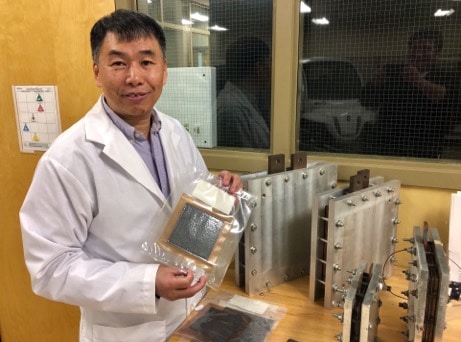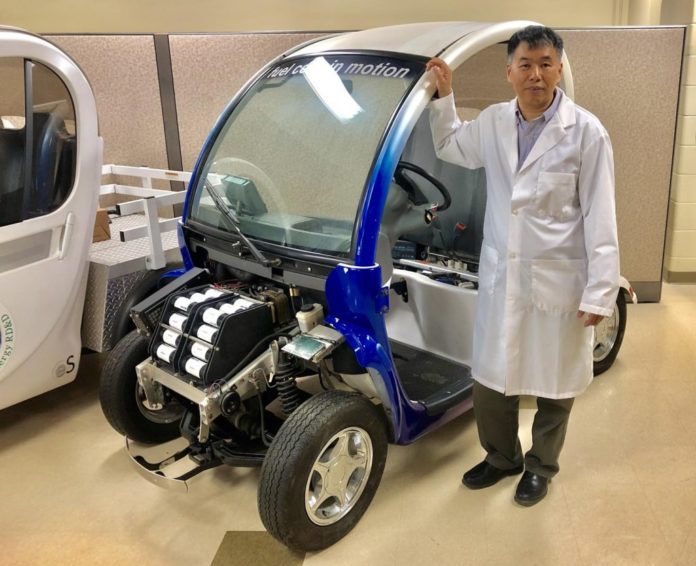The researchers at the University of Waterloo have developed a new fuel cell that could be used to power up hybrid vehicles when they are moving. Instead of using petrol or diesel engines, these new innovative fuel cells can be a great choice to power your vehicles.
According to the researchers, advancements in zero-emission fuel cells could make the technology cheap enough to replace traditional gasoline engines in vehicles.
The new improved design can last at least 10 times longer than current versions. In addition, the mass-production will make them more economical and can be used to power engines alone, without the need for traditional or battery powered engines.
“With our design approach, the cost could be comparable or even cheaper than gasoline engines,” said Xianguo Li, director of the Fuel Cell and Green Energy Lab at Waterloo. “The future is very bright. This is clean energy that could boom.”

Initially, the researchers concentrated on hybrid vehicles. The fuel cells are not currently used in hybrid cars as they are very expensive. These vehicles use an internal combustion engine and also can be fueled like normal cars, but also have an electric motor and battery.
The gas engine recharges the battery when the vehicle is in motion and this helps to give it a long driving range. During low speed the vehicle utilizes pure electric power and when speed increases it can switch to petrol. This generates lower emission when compared to the petrol-fuelled vehicles.
Theoretically, existing fuel cells can replace those gas engines, but as they are very expensive, practically it is not possible.
The researchers solved that problem with a design that makes fuel cells far more durable by delivering a constant, rather than fluctuating, amount of electricity. As a result, the fuel cells lasted between 4.9-11.8 times longer depending on the type of terrain the car was driven on.
Fuel cells produce their own electricity from a chemical reaction that combines hydrogen and oxygen to make water. This will make the process simpler and therefore far cheaper.
“We have found a way to lower costs and still satisfy durability and performance expectations,” said Li, a professor of mechanical and mechatronics engineering. “We’re meeting economic targets while providing zero emissions for a transportation application.”
Professor Li and his team hope the introduction of fuel cells in hybrid vehicles will lead to mass production and lower unit costs. This new invention could replace both batteries and gas engines entirely as it provides an affordable, safe, dependable, clean source of electrical power.
“This is a good first step, a transition to what could be the answer to the internal combustion engine and the enormous environmental harm it does,” said Li. The finding is published in the journal Applied Energy.
Li collaborated with lead researcher Hongtao Zhang, a former post-doctoral fellow, Waterloo mathematics professor Xinzhi Liu and Jinyue Yan, an energy expert, and professor in Sweden.
